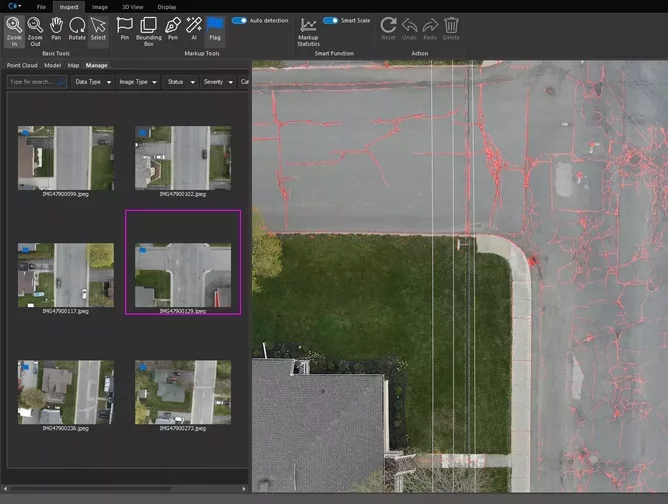Qii.AI: Using AI to detect road defects

Qii.AI, a company providing AI-enabled, computer vision and data management software solutions for asset management and digital inspections, has released its Road Defect Detection (RDD) Module.
This module enables automatic detection and classification of potholes, cracks, and other defects in road surfaces, within the Qii.AI platform. According to Stéphane Bouvier, the CEO of EXO Tactik, a Quebec-based provider of drone inspection services that has partnered with Qii.AI in the province, "…this technology is arriving just in time to satisfy a rapidly expanding need to manage and interpret data from drone-based road inspections."
How did the company start?
In 2014, the company was founded, a drone inspection company called Industrial SkyWorks. Shortly after launching, they discovered a problem: They collected tons of data during inspections but didn’t have a solution that made it easy to manage this information and share it with clients.
So, they created technology to solve these challenges and provide clients with deeper insights into their assets. In 2020, the company rebranded as Qii.AI and launched an enterprise platform that combines drone inspection software with a cutting-edge computer vision labeling tool and machine learning.
Since its launch in 2020, the Qii.AI platform has distinguished itself as the most advanced suite of visual data management and analysis applications available for producers and consumers of visual inspection data. The Qii.AI platform uniquely enables users to rapidly label, train, and manage data to achieve AI functionality at scale.
Using AI and ML to detect issues

Commenting on the release of the RDD Module, Qii.AI CTO, Dr. Gunho Sohn said, "Engineers face formidable challenges effectively inspecting, tracking, and managing road surface conditions. Qii.AI's RDD Module allows users to train their own AI-enabled visual inspection functions, end-to-end.”
Roads tend to deteriorate with time under the influence of traffic and pressure from the environment, such as varying weather conditions and ground movements. Efficient and timely road inspection is one of the key elements of a successful highway management system. However, periodical human visual inspection of the road surface tends to be costly and time-consuming. With the help of an AI, this process and can be significantly streamlined and these costs can be substantially reduced.
“Qii.AI's RDD innovations create the option to automatically detect, categorise, and grade problems in the road surface - that is to create intelligence to help manage road maintenance and repair planning, in the most-efficient, user-defined manner. With RDD's multi-modal AI functions, users can easily generate consistent and accurate training data and define and control quality tolerances. This unique feature allows our users to continuously improve their unique AI's performance, throughout the lifecycle of their RDD project," added Dr. Gunho Sohn.
(Image source: Qii.AI)






